
Birds Around Las Vegas, Wildlife Around Las Vegas
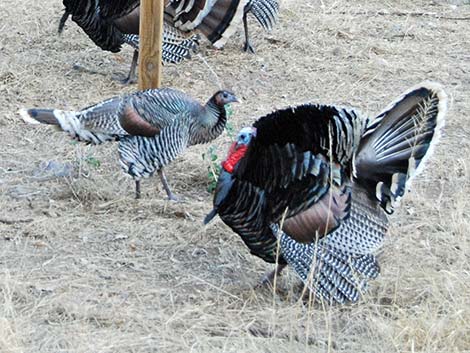 Wild Turkey female and male |
General Description: Wild Turkeys (Meleagris gallopavo) are large, plump ground birds with a naked head. In males, the head, neck, and wattle may be red, and males have a "beard." Females are smaller and more drably colored with a blue-gray head. Turkeys can fly, but they prefer to walk on the ground. Taxonomy: Galliformes, Phasianidae, Meleagridinae Favored Habitat: Wild Turkeys probably prefer the eastern hardwood forest, but they have been widely introduced in the west in various habitats where they do well. Where to Find: Around Las Vegas, look for turkeys at Phantom Ranch at the bottom of the Grand Canyon, Overton Wildlife Management Area, and the upper end of Zion Canyon (Zion National Park) between the lodge and Weeping Rock. Another good place to find Wild Turkey is Madera Canyon in southern Arizona. |
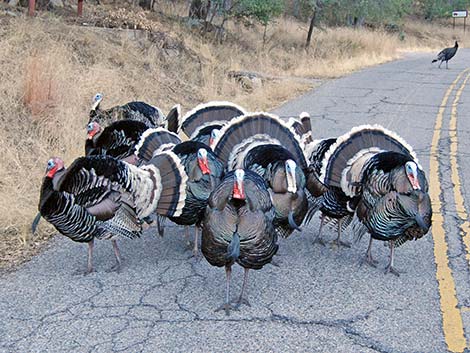 Wild Turkey males |
Comments: Wild Turkeys have been widely introduced throughout the western US, and all Wild Turkeys in Nevada were introduced. In 1954, a hunting group released Wild Turkeys near Lovelock, but they didn't survive. In the early 1960s, biologists released Merriam’s Wild Turkeys (Meleagris gallopavo merriami) in the Spring Mountain Range (near Las Vegas) and Carson Range (near Reno). Merriam’s Wild Turkeys are native to the greater Rocky Mountains region, but these birds didn't survive in our mountains. In 1987, NDOW obtained Rio Grande Wild Turkeys (Meleagris gallopavo intermedia) from California (these birds are native to Texas, Oklahoma, and Kansas). NDOW released them at the Mason Valley WMA near Yerington. These birds successfully adapted to our arid climate. Since then, Rio Grande Wild Turkeys have been established in Churchill, Clark, Elko, Humboldt, Lander, Lincoln, Lyon, Pershing, and White Pine counties where they now have annual spring turkey hunting seasons. Rio Grande Wild Turkeys were released at the Overton WMA in February 1990. Comments based on NDOW Facebook post April 28, 2022 |
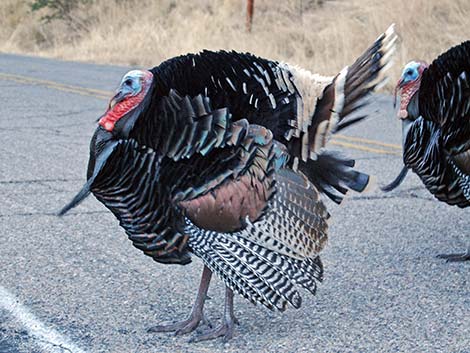 Wild Turkey male in breeding plumage |
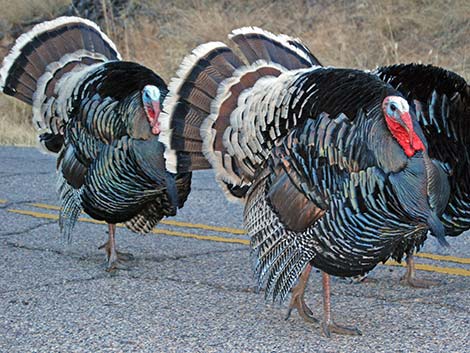 Wild Turkey males in breeding plumage |
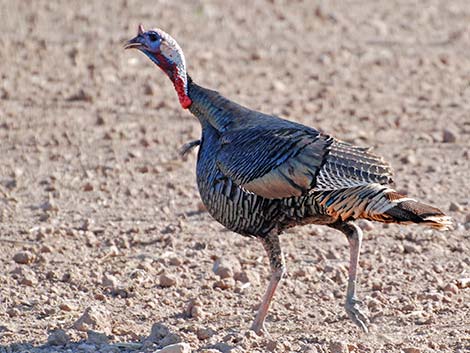 Wild Turkey male; note the beard |
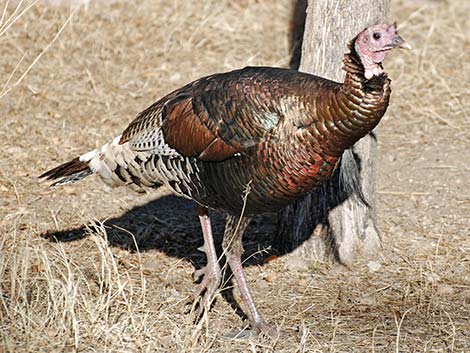 Wild Turkey male; note the beard |
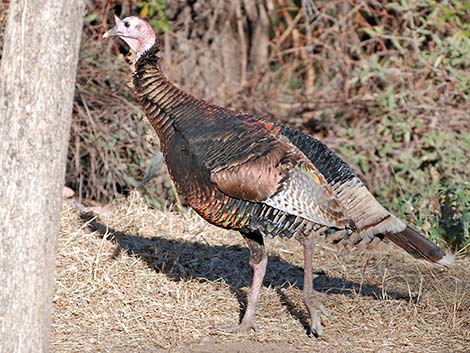 Wild Turkey female |
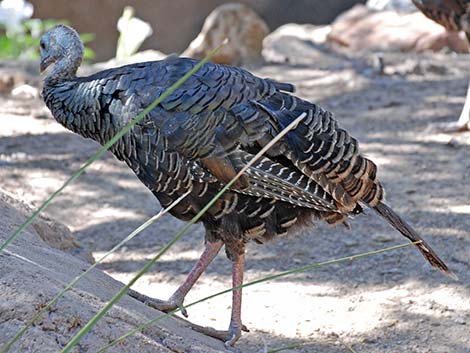 Wild Turkey female in southern Arizona |
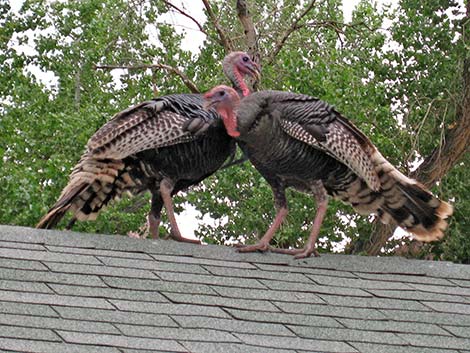 Wild Turkeys at Phantom Ranch in the bottom of the Grand Canyon |
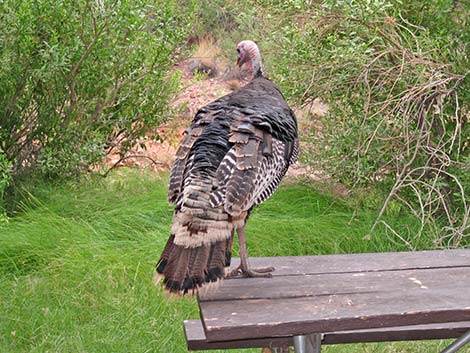 Wild Turkey at Phantom Ranch in the bottom of the Grand Canyon |
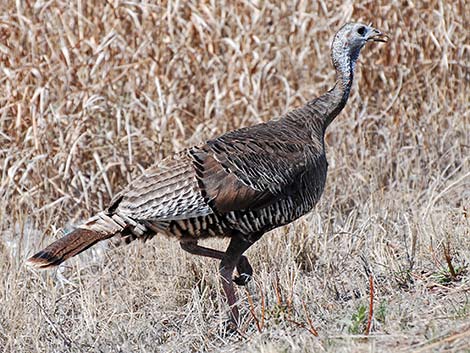 Wild Turkey in West Texas |
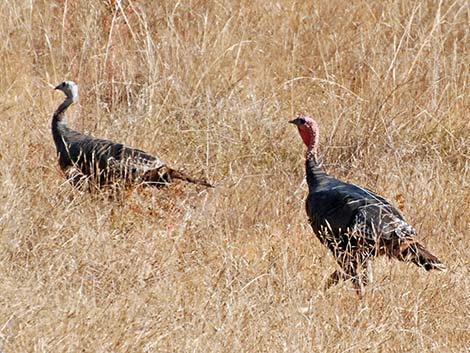 Turkeys foraging in an old field |
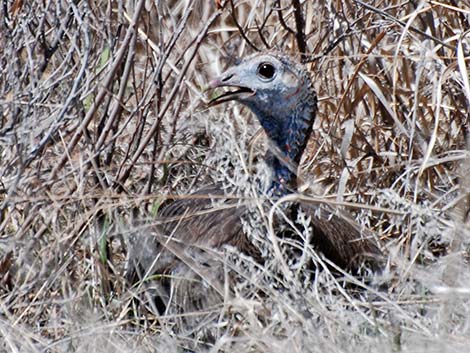 Wild Turkey doing a quick threat assessment in West Texas |
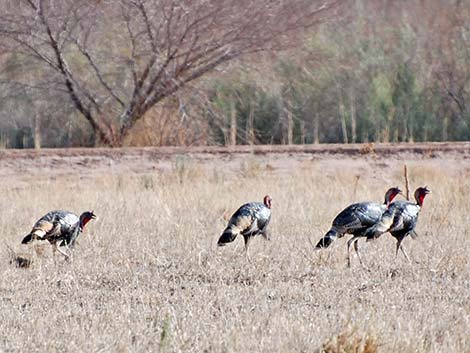 Turkeys foraging in an old field (Overton Wildlife Management Area) |
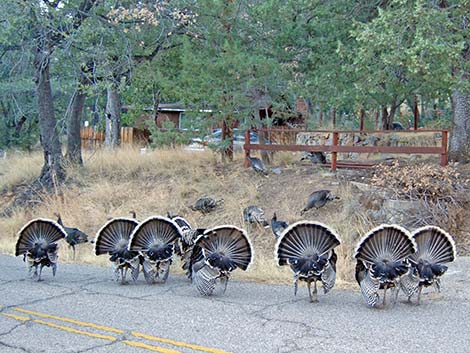 |
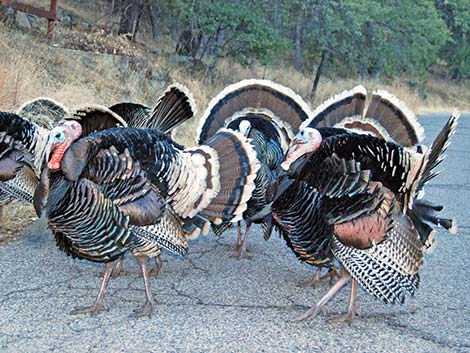 |
Note: All distances, elevations, and other facts are approximate.
![]() ; Last updated 240105
; Last updated 240105
| Pheasants | Birds Around Las Vegas | Wildlife Around Las Vegas | Glossary | Copyright, Conditions, Disclaimer | Home |